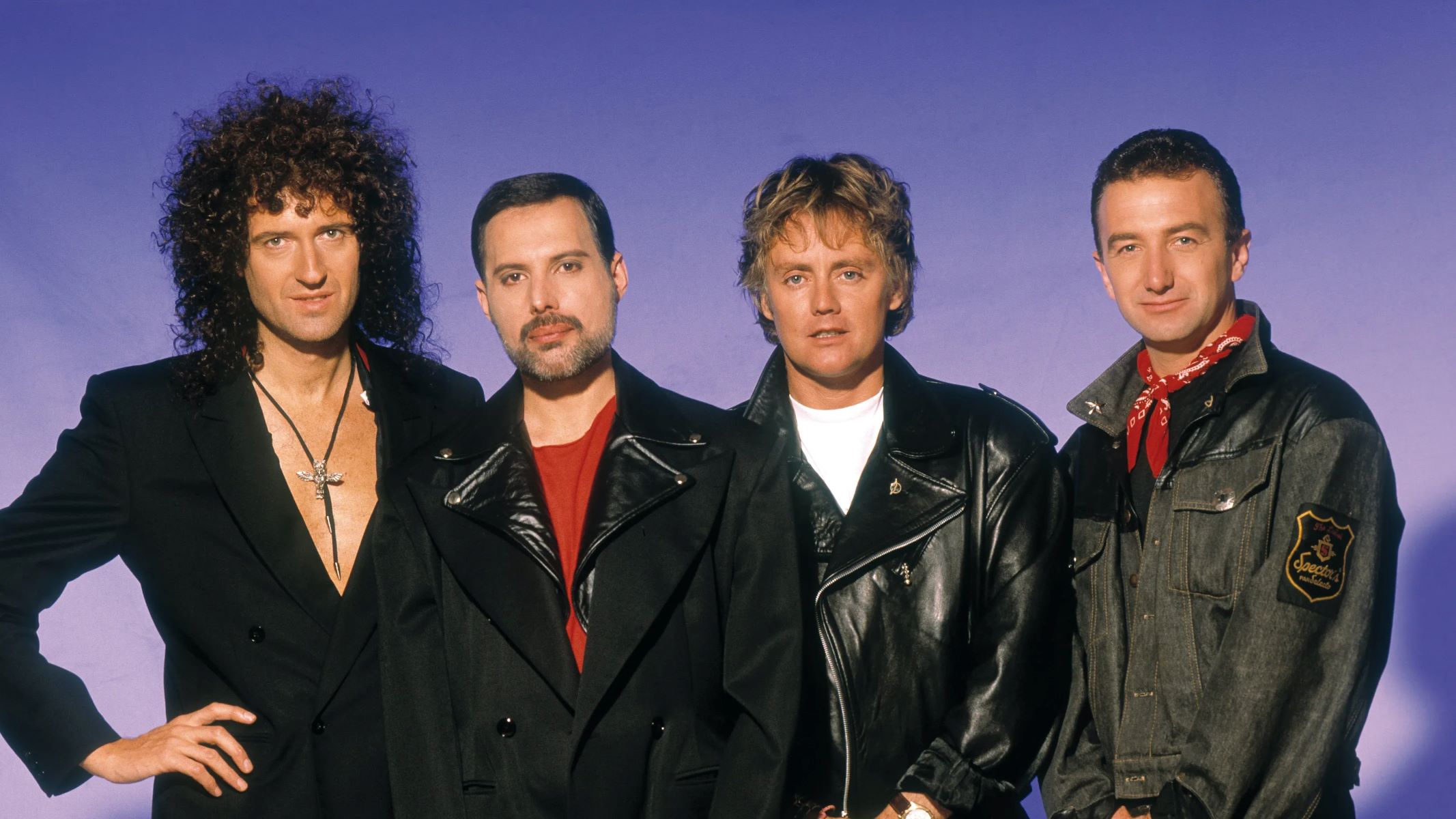Home>Production & Technology>Record Label>How To Get Signed In A Record Label


Record Label
How To Get Signed In A Record Label
Published: January 24, 2024
Learn the secrets and strategies to get signed by a record label. Discover how to impress industry professionals and stand out in the competitive music industry.
(Many of the links in this article redirect to a specific reviewed product. Your purchase of these products through affiliate links helps to generate commission for AudioLover.com, at no extra cost. Learn more)
Table of Contents
- Introduction
- Understanding the Music Industry
- Developing Your Musical Identity
- Building a Solid Fanbase
- Creating a Professional Demo
- Networking and Making Connections
- Researching and Targeting Record Labels
- Submitting Your Demo to Record Labels
- Following Up with Record Labels
- Showcasing Your Talent
- Negotiating and Signing a Record Deal
- Conclusion
Introduction
Getting signed by a record label is a dream come true for many aspiring musicians. It’s a validation of your talent and hard work, and opens up doors to a larger audience and professional opportunities. However, navigating the complex and competitive music industry can be daunting. That’s why having a solid understanding of how record labels operate and knowing the steps to take can greatly increase your chances of getting signed.
In this article, we will guide you through the process of getting signed by a record label. From developing your musical identity to submitting your demo and negotiating a record deal, we’ll cover each step in detail, offering valuable insights and tips along the way.
Before diving into the practical steps, it’s important to have a realistic understanding of the music industry. It’s a constantly evolving landscape with fierce competition. Record labels are inundated with countless demos and submissions every day, making it crucial to stand out from the crowd. But don’t be discouraged – with the right approach and determination, you can increase your chances of catching the attention of record labels and securing a deal.
Throughout this journey, it’s important to stay true to your artistic vision and develop a distinct musical identity. Record labels are looking for unique and talented artists who have a clear artistic direction and potential for commercial success. By honing your sound and image, you’ll not only attract the right audience but also demonstrate your potential to labels.
Building a loyal and engaged fanbase is another key aspect of getting signed. Labels want to see that you have a dedicated following and the ability to generate interest and excitement around your music. Utilize social media, live performances, and other marketing strategies to connect with fans and grow your fanbase organically.
Now that we’ve set the groundwork, let’s delve into the specific steps involved in getting signed by a record label. Strap in, because this journey requires dedication, perseverance, and a lot of hard work. But remember, every successful artist started from somewhere, and with the right strategy, you can make your dreams of getting signed a reality. Let’s dive in!
Understanding the Music Industry
Before embarking on your journey to get signed by a record label, it’s important to have a solid understanding of how the music industry operates. The music industry is a complex ecosystem with various players and revenue streams, and understanding its dynamics will help you make informed decisions and navigate the industry effectively.
First and foremost, it’s essential to recognize that the music industry is constantly evolving, shaped by advancements in technology, changes in consumer behavior, and shifts in the way music is consumed. Streaming platforms have become the dominant mode of music consumption, with services like Spotify, Apple Music, and YouTube generating a significant portion of revenue for artists and labels. This shift has transformed the way music is promoted, distributed, and monetized.
Record labels play a pivotal role in the music industry. These are companies that sign and develop artists, provide them with financial support, marketing, and promotional efforts, and distribute their music to the masses. Labels have established relationships with streaming platforms, radio stations, and other media outlets, giving them the power to amplify an artist’s reach and exposure.
Label deals generally involve the label providing funding for recording, marketing, and tour support in exchange for a share of the artist’s revenue. It’s important to note that signing with a label is not the only route to success in the music industry. Many independent artists have found success by taking a DIY approach, utilizing online platforms and social media to build a fanbase and generate revenue.
Understanding the different revenue streams in the music industry is also crucial. Besides streaming and sales, artists can earn money through live performances, sync licensing (having their music featured in films, TV shows, commercials, etc.), merchandise sales, and brand partnerships. Diversifying income streams can provide artists with stability and financial independence.
Keep in mind that the music industry is highly competitive, and breaking through can be challenging. It requires not only talent but also a strong work ethic, networking skills, and perseverance. Building relationships with industry professionals, attending conferences and music events, and educating yourself about the latest trends and technologies will give you a competitive edge.
Now that you have a basic understanding of the music industry, it’s time to develop your musical identity and build a loyal fanbase. In the next sections, we’ll explore how to do just that, and increase your chances of catching the attention of record labels.
Developing Your Musical Identity
In the saturated music industry, having a unique and compelling musical identity is crucial. It’s your musical identity that sets you apart from the crowd and grabs the attention of record labels. Developing a distinct sound and image will help you stand out and leave a lasting impression on both industry professionals and listeners.
When it comes to developing your musical identity, authenticity is key. Start by exploring different genres and styles that resonate with you, and find your own voice within them. Experiment with different sounds, melodies, and lyrics until you uncover your artistic voice. Don’t be afraid to take risks and push boundaries, as it’s often these unique elements that capture the attention of record labels.
Another aspect of your musical identity is your image and branding. How you present yourself visually is just as important as the sounds you create. Consider your stage presence, style, and aesthetic, and ensure they align with your music and the message you want to convey. Your image should be an authentic reflection of your personality and the emotions you express through your music.
It’s also crucial to understand your target audience and market. Knowing who your music is intended for will help you tailor your sound, image, and marketing efforts accordingly. Conduct market research, identify similar artists who appeal to your target audience, and analyze their approach to gain insights.
Collaboration can also play a significant role in developing your musical identity. Working with other musicians, songwriters, and producers can bring fresh perspectives, expand your creative horizons, and help you fine-tune your sound. Don’t hesitate to seek out collaborations with talented individuals who align with your artistic vision.
Consistency is key when developing your musical identity. Strive for a consistent and cohesive sound across your body of work. This doesn’t mean you can’t experiment or evolve over time, but having a core identity at the heart of your music will make it easier for listeners and industry professionals to identify and connect with you.
Lastly, don’t forget the power of storytelling. Create compelling narratives through your music and lyrics that resonate with your audience. People connect with stories, emotions, and experiences, so infuse your music with meaning and substance.
By developing a strong and authentic musical identity, you’ll not only attract the attention of record labels, but also build a loyal fanbase who connects with your music on a deeper level. In the next section, we’ll explore how to grow your fanbase and create a buzz around your music.
Building a Solid Fanbase
When it comes to catching the attention of record labels, having a dedicated and engaged fanbase is crucial. Labels want to see that you have an existing audience that supports your music and can help generate buzz around your career. Building a solid fanbase takes time and effort, but with the right strategies, you can grow your fanbase organically.
Social media is a powerful tool for connecting with fans and building a community around your music. Choose platforms that align with your target audience and consistently engage with your followers. Share updates about your music, behind-the-scenes content, and personal insights to forge a genuine connection. Encourage user-generated content and interact with your fans to make them feel valued and appreciated.
Live performances are another key way to connect with fans and build a loyal following. Whether it’s small local gigs or opening for established artists, make every performance memorable. Deliver a captivating show, involve the audience, and leave a lasting impression. Don’t underestimate the power of word-of-mouth marketing – a positive live experience can turn attendees into loyal fans who spread the word about your music.
Utilize online platforms and music communities to expand your reach and connect with new fans. Submit your music to popular streaming playlists, collaborate with influencers or other artists in your genre, and participate in online forums and discussions. Engage with music blogs and online magazines to secure press coverage and reviews, which can help boost your visibility.
Offering exclusive content or incentives is a great way to incentivize fans to support your music. Consider creating a membership platform or fan club where fans can access exclusive behind-the-scenes content, early releases, merchandise discounts, and even virtual meet-and-greets. This not only strengthens the relationship with your fanbase but also provides a sustainable source of income.
Building a solid fanbase requires consistent and strategic marketing efforts. Develop a cohesive brand across all your online platforms, with visually appealing graphics and a strong online presence. Utilize email marketing to keep your fans updated on new releases, upcoming shows, and other exciting news. Collaborate with influencers or partner with other artists for cross-promotion to expand your reach.
Remember that authenticity and genuine connection are key in building a fanbase. Interact with your fans, reply to comments and messages, and show gratitude for their support. Building a loyal fanbase takes time, so be patient and persistent in your efforts.
By focusing on building a solid fanbase, you not only increase your chances of catching the attention of record labels but also create a strong foundation for your music career. In the next section, we’ll explore how to create a professional demo that showcases your talent
.
Creating a Professional Demo
A professional demo is an essential tool for getting signed by a record label. It serves as a representation of your talent, showcasing your musical abilities and potential. A well-crafted demo can capture the attention of record labels and convince them of your marketability and commercial viability. Here are some key steps to create a professional demo:
- Select your best songs: Choose the strongest songs that represent your musical style and abilities. Focus on quality rather than quantity. Ideally, include 3-4 songs that showcase your range and versatility.
- Quality recording: A poorly recorded demo can undermine the impact of your music. Invest in a professional recording studio or work with an experienced producer/engineer who can capture your sound in the best possible way. Ensure that vocals and instrumentation are balanced, and the overall sound is crisp and polished.
- Arrangement and production: Consider the arrangement and production of your songs. A well-produced demo will demonstrate your attention to detail and potential for commercial success. Pay attention to dynamics, instrumentation, and creative elements that make your music stand out.
- Professional mixing and mastering: Once the recordings are done, the tracks will need to be mixed and mastered to achieve a polished and cohesive sound. Enlist the help of a professional mixing engineer and mastering engineer to ensure the best possible sonic quality.
- Artwork and packaging: Don’t overlook the visual aspect of your demo. Design professional artwork and packaging that reflects your brand and grabs attention. A visually appealing demo will leave a positive impression and show that you take your music career seriously.
- Include a concise bio and contact information: Along with the music, include a brief artist bio that highlights your accomplishments, influences, and unique selling points. Include your contact information, such as email and social media handles, so labels can easily reach out to you.
- Consider a video component: In addition to audio tracks, consider including a video component to your demo. Music videos or live performance videos can provide a visual representation of your music and enhance your chances of capturing attention online.
Once your demo is complete, make sure to proofread all written content and double-check the audio quality. Take the time to listen to your demo critically and consider seeking feedback from trusted industry professionals or mentors. Use their feedback to further refine and improve your demo before submitting it to record labels.
Remember, a professional demo is your calling card, so put your best foot forward. It’s an investment in your music career that can greatly increase your chances of getting noticed by record labels. In the next sections, we’ll explore how to effectively network and make connections in the music industry.
Networking and Making Connections
Networking and making connections within the music industry are essential steps towards getting signed by a record label. Building relationships with industry professionals, other musicians, and influencers can open doors and provide valuable opportunities for your music career. Here are some key strategies to effectively network and make connections:
- Attend industry events: Make an effort to attend conferences, music festivals, and industry events where you can meet industry professionals, artists, and like-minded individuals. Take advantage of networking sessions, workshops, and panels to connect with people who can help advance your career.
- Join music organizations and associations: Become a member of music organizations and associations that align with your genre and career aspirations. These groups often provide networking opportunities, resources, and educational events that can expand your network and industry knowledge.
- Utilize social media: Social media platforms like LinkedIn, Facebook, Instagram, and Twitter are powerful tools for networking in the digital age. Follow and engage with industry professionals, fellow musicians, and influencers. Share your music, collaborate with others, and actively participate in music-related conversations and communities.
- Collaborate with other musicians: Collaborations with other musicians not only enhance your creativity but also provide opportunities to connect with their network and fanbase. Seek out artists who have a similar sound or audience and explore collaboration possibilities, such as recording together, co-writing songs, or performing live gigs together.
- Seek music industry mentorship: Finding a mentor within the music industry can provide guidance, support, and valuable connections. Look for experienced professionals who are willing to share their knowledge and help you navigate the industry. Attend workshops, seminars, or even consider reaching out directly to individuals whose career you admire.
- Reach out to industry professionals: Don’t be afraid to reach out to industry professionals, such as A&R representatives, managers, producers, or promoters. Personalized and well-crafted emails or messages introducing yourself, your music, and expressing interest in their work can lead to fruitful connections.
- Support other artists: Show genuine support for fellow musicians by attending their shows, sharing their music, and engaging with their content on social media. Building a supportive community can lead to reciprocal support and networking opportunities.
Remember that networking is a two-way street. It’s not just about what others can do for you, but also how you can contribute and add value to their careers. Sincere and meaningful connections are built on mutual respect and collaboration.
Networking takes time, effort, and patience. Be persistent and proactive in your networking efforts, but also maintain a genuine and authentic approach. It’s important to focus on building relationships rather than just collecting contacts.
In the next section, we’ll dive into the importance of researching and targeting record labels to increase your chances of getting signed.
Researching and Targeting Record Labels
Researching and targeting the right record labels is a critical step towards getting signed. Sending your demo to a label that aligns with your musical style and has a track record of signing similar artists increases your chances of getting noticed and receiving a favorable response. Here are key steps to effectively research and target record labels:
- Identify your genre: Determine the genre or sub-genre that best describes your music. Understanding your genre will help you identify the record labels that specialize in that particular sound and have a roster of artists in that genre.
- Study artist rosters: Research the artist rosters of different record labels to see if they have signed artists with a similar style or sound to yours. Look for successful artists who not only share your genre but also reflect your aspirations and long-term goals.
- Consider label size: Take into account the size and resources of a record label. Larger labels may have more resources, but smaller labels might provide more personalized attention and support. Think about which type of label aligns best with your goals and preferred working style.
- Assess label reputation: Look into the reputation and track record of the record labels you’re considering. Investigate their past and current artist success stories, their distribution networks, and their relationships with streaming platforms and other industry players. A reputable label can provide you with better opportunities and support.
- Check submission guidelines: Once you’ve identified potential record labels, thoroughly review their submission guidelines. Each label has specific instructions on how they want to receive demos, whether it’s through email, a submission platform, or physical mail. Adhering to their guidelines shows professionalism and respect for their processes.
- Craft personalized submissions: Tailor your submission package to each record label you’re targeting. Include a personalized cover letter explaining why you feel your music would be a good fit for their label. Highlight any relevant achievements, such as awards, press coverage, or a significant fanbase.
- Utilize industry connections: Leverage your networking efforts to seek industry connections who can introduce you to record labels or vouch for your talent. Personal referrals can grab the attention of label executives and potentially fast-track the review process.
Remember that record labels receive numerous submissions daily, so it’s important to stand out. A well-researched and targeted approach increases your chances of catching their attention and receiving a response. Be patient and prepared for possible rejection, as the process can be competitive and subjective.
In the next section, we’ll guide you through the process of submitting your demo to record labels and provide tips on maximizing your chances of getting a positive response.
Submitting Your Demo to Record Labels
Submitting your demo to record labels is a crucial step in getting signed. It’s your opportunity to showcase your talent and make a lasting impression on label executives. Here are essential tips to maximize your chances of getting a positive response when submitting your demo:
- Follow submission guidelines: Carefully review the submission guidelines provided by each record label. Pay attention to specific instructions on file format, length, and any additional materials they require. Failing to follow these guidelines may result in your submission being overlooked.
- Maintain a professional presentation: Present your demo in a professional and polished manner. Use high-quality audio files and ensure that the recordings are clean and well-mixed. Consider having your demo professionally mastered to provide a consistent and professional sound.
- Keep it concise: Limit your demo to your best three or four songs. Showcase your range, versatility, and potential in these selected tracks. Label executives have limited time, so make each song count.
- Include a brief bio: Along with your demo, include a concise artist bio that highlights your musical accomplishments, influences, and any significant milestones. Keep it focused and engaging, demonstrating your unique qualities and potential as an artist.
- Personalize your submission: Take the time to research the record label and address your submission to the appropriate person. Personalize your cover letter or email, explaining why you believe your music would be an excellent fit for their label. Show genuine interest and enthusiasm for their work.
- Consider a press kit: Create a press kit that includes your demo, bio, professional photos, and any press coverage or notable achievements. A well-designed press kit can leave a lasting impression and provide additional information about your music and career.
- Be patient and follow up: Give the record label sufficient time to review your submission before following up. Sending a polite and concise follow-up email after a few weeks shows your enthusiasm and commitment. However, avoid being too pushy or demanding.
- Utilize online platforms: In addition to physical submissions, consider utilizing online platforms that cater to music industry professionals. Websites like SoundCloud, Bandcamp, or music submission platforms can provide an easy and convenient way to share your music with record labels.
Remember, the music industry is highly competitive, and not every submission will lead to a record deal. Be prepared for possible rejection and use it as an opportunity to learn and grow. Keep refining your craft, build your fanbase, and continue seeking opportunities to get your music heard.
In the next section, we’ll discuss the importance of following up with record labels and provide guidance on how to do it effectively.
Following Up with Record Labels
Following up with record labels after submitting your demo is an important step in the process of getting signed. It demonstrates your enthusiasm, professionalism, and perseverance. Here are some key tips for following up effectively:
- Give them time: It’s crucial to give the record label ample time to review your submission before following up. Labels receive numerous demos, and the review process can take time. Be patient and respect their timeline.
- Keep your follow-up concise: When reaching out, keep your follow-up message brief and to the point. Remind them of your submission and express your gratitude for their time. Avoid bombarding them with excessive messages or lengthy explanations.
- Provide updates or new material: If you’ve made significant progress since initially submitting your demo, such as new releases, noteworthy performances, or increased press coverage, mention these developments in your follow-up. This shows growth and progress in your career.
- Stay positive and professional: Maintain a positive and professional tone in all your interactions. Even if you receive a rejection, respond graciously and express your appreciation for their consideration. You never know when a future opportunity may arise with the same label.
- Promote new releases independently: While waiting for a response from record labels, continue working on your music and release new material independently. Building momentum and generating buzz around your music can capture the attention of labels and demonstrate your potential as an artist.
- Continue networking: Keep networking and make connections within the music industry. Attend industry events, build relationships with industry professionals, and collaborate with fellow musicians. Networking can lead to invaluable opportunities and increase your chances of getting noticed.
- Consider alternative routes: If you don’t receive a positive response from a particular record label, don’t be discouraged. There are other pathways to success in the music industry. Explore independent or smaller labels, consider self-release options, or focus on building a strong fanbase that attracts the attention of industry professionals.
Remember, record labels receive a high volume of submissions, and it’s important to stand out and persistently follow up without being overly pushy. Each follow-up should be tailored and personalized to the specific record label and individual you are communicating with.
Lastly, staying proactive and committed to your music career is key. Keep honing your craft, building your fanbase, and seeking new opportunities. Getting signed by a record label is just one possible avenue to success, and there are many independent artists who have achieved significant success without a label contract.
In the next section, we’ll explore how you can showcase your talent and expand your exposure through live performances.
Showcasing Your Talent
Showcasing your talent through live performances is an essential aspect of building your music career and attracting the attention of record labels. Live shows provide a unique opportunity to connect with audiences, demonstrate your musical abilities, and create a memorable experience. Here are some key tips for showcasing your talent effectively:
- Prepare a compelling live set: Craft a well-curated live set that showcases your strongest songs and highlights your unique style. Consider the flow and energy of your performance, and include moments that captivate the audience.
- Engage with your audience: Interact with the audience and create a connection. Engage them with your stage presence, banter between songs, and genuine appreciation for their support. A strong connection with the audience can leave a lasting impression and generate a buzz around your performances.
- Invest in your stage presence: Work on your stage presence and performance skills. Practice your instrument or vocal delivery, develop your movement and body language, and work on your overall stage charisma. Your performance should be captivating and memorable.
- Utilize visual elements: Consider incorporating visual elements into your live performance to enhance the overall experience. This can include stage lighting, projections, or even choreographed visuals that complement your music and create a more impactful performance.
- Collaborate with other performers: Collaborating with other musicians or performers can add depth and variety to your live shows. Consider incorporating guest artists, dancers, or visual artists to create a unique and dynamic performance that sets you apart.
- Research and book appropriate venues: Research and target venues that align with your musical style and attract your target audience. Start with smaller venues and gradually work your way up to larger stages. Engage with the local music scene and build relationships with venue owners and promoters.
- Promote your shows: Effectively promote your live performances to maximize attendance. Utilize social media, email newsletters, and online event platforms to spread the word. Engage with local media outlets and music blogs to secure coverage and build anticipation for your shows.
- Record and share live performances: Record your live performances and share them on your social media platforms and website. This allows potential fans and industry professionals to get a taste of your live energy and talent, even if they haven’t had the chance to attend a show in person.
Remember, live performances are not just about showcasing your talent, but also about creating memorable experiences for your audience. Delivering an exceptional live show can leave a lasting impression, generate word-of-mouth promotion, and attract the attention of record labels and other industry professionals.
Continue to refine your live performance skills, experiment with new ideas, and seek feedback from fellow musicians and trusted individuals. Embrace every opportunity to showcase your talent and make an impact on stage.
In the next section, we’ll dive into the process of negotiating and signing a record deal, as well as important considerations to keep in mind.
Negotiating and Signing a Record Deal
Negotiating and signing a record deal is a significant milestone in your music career. It’s crucial to approach this process with careful consideration and a clear understanding of your goals and expectations. Here are key steps to navigate the negotiation and signing of a record deal:
- Consult with a music attorney: Before entering into any contract, it’s advisable to consult with a music attorney who specializes in the music industry. A qualified attorney can help you understand the terms and conditions of the contract, negotiate on your behalf, and ensure that your rights and interests are protected.
- Evaluate the offer: Thoroughly review the terms of the record deal, including the length of the contract, royalty rates, tour support, marketing and promotion commitments, ownership of master recordings, and any advance or signing bonus. Consider how the deal aligns with your goals, artistic vision, and long-term career plans.
- Negotiate the terms: If there are aspects of the contract that you’re not comfortable with or that you feel need adjustment, engage in a negotiation process with the label. This may involve discussions about royalty rates, creative control, sample clearances, or any other terms that are important to you. Be open to compromise, but also advocate for your needs and long-term interests.
- Understand the rights and obligations: Familiarize yourself with the rights and obligations outlined in the contract. Understand what the label expects from you in terms of recording, release schedules, promotional activities, and any exclusivity clauses. Ensure that the contract aligns with your ability to create and release music on your terms.
- Consider ancillary rights: Discuss and clarify any ancillary rights, such as sync licensing, merchandise, publishing, or brand partnerships. Understand how these additional revenue streams will be managed and how any income will be divided between you and the label.
- Seek clarity on key contract terms: Seek clarification on important contract terms, such as ownership of master recordings, publishing rights, and recoupment. Understand how royalties will be calculated and paid out, and any provisions for termination or renegotiation of the contract.
- Protect your creative control: If maintaining creative control is important to you, negotiate for provisions that allow you to have input in the artistic direction of your music, artwork, and overall image. Retaining creative control ensures that your artistic vision remains intact throughout the duration of the contract.
- Review termination and sunset clauses: Understand the conditions under which the contract can be terminated and the terms for any subsequent royalty obligations. Review the sunset clause, which outlines how long the label will continue to receive royalties after the contract ends.
- Have a clear exit strategy: In case the partnership does not work out as expected, ensure that the contract includes provisions for an amicable exit, including buy-out clauses and the return of rights to your music.
Remember, negotiating and signing a record deal is a significant decision that will shape your music career. Take the time to understand the terms, seek professional advice, and ensure that the deal aligns with your artistic vision and long-term goals. It’s important to feel confident and comfortable in the partnership before signing the contract.
In the next section, we’ll conclude our journey towards getting signed by a record label and summarize the key points to keep in mind throughout your music career.
Conclusion
Getting signed by a record label is a significant milestone in any musician’s career. It’s a validation of your talent, hard work, and dedication to your craft. While the journey towards getting signed may be challenging, with the right approach and perseverance, you can increase your chances of attracting the attention of record labels and securing a deal.
Throughout this article, we have covered important steps and strategies to help you on your path towards getting signed. Understanding the music industry landscape, developing your musical identity, building a solid fanbase, creating a professional demo, networking and making connections, researching and targeting record labels, submitting your demo, following up, showcasing your talent, and negotiating and signing a record deal – each of these elements plays a vital role in your journey.
Remember, the music industry is highly competitive, and success does not come overnight. It requires hard work, persistence, and a willingness to continuously refine your craft and adapt to the ever-changing industry landscape. It’s important to stay true to your artistic vision, engage with your audience, and continue building your fanbase even if record label opportunities may not come immediately.
While getting signed to a record label can open doors to resources, support, and broader exposure, it’s crucial to consider alternative routes to success as well. Many independent artists have achieved significant recognition and success by releasing music on their terms, building their fanbase, and leveraging digital platforms.
As you embark on your journey, remember to stay authentic, be proactive in networking and promoting your music, and never stop honing your craft. Every step along the way is an opportunity for growth and learning.
Now, armed with the knowledge and insights shared in this article, go forth and pursue your dreams. The road may be winding, but with passion, perseverance, and dedication, you can make your mark in the music industry. Good luck!











